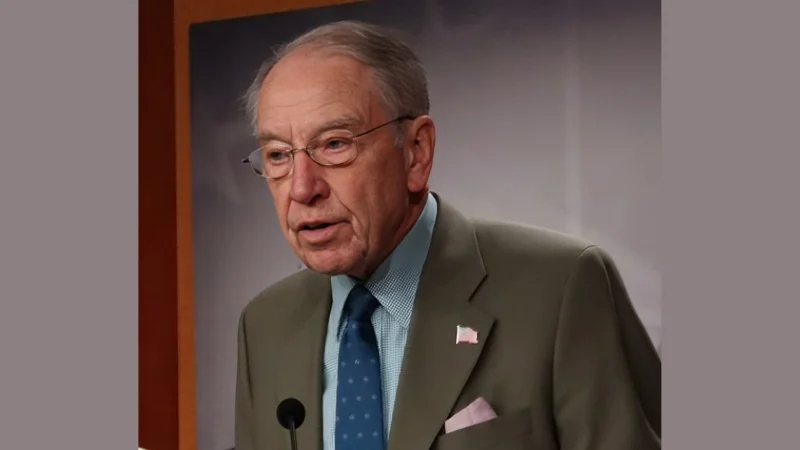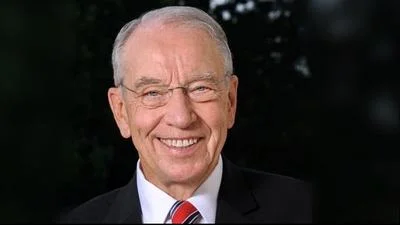Chuck Grassley, Chairman of the Senate Judiciary Committee | Facebook, Senate Judiciary Committee Republicans
Chuck Grassley, Chairman of the Senate Judiciary Committee | Facebook, Senate Judiciary Committee Republicans
Senator Chuck Grassley, chairman of the Senate Judiciary Committee and a grain farmer, led a committee hearing focused on how market consolidation affects production costs for family farmers. The hearing examined rising fertilizer prices and the lack of transparency in seed and fertilizer markets following the discontinuation of annual industry reports in 2014.
Grassley’s bipartisan Fertilizer Research Act was highlighted as an effort to improve understanding of factors driving fertilizer costs, which represent a significant expense for farmers. The act aims to address information gaps left when the Obama administration stopped publishing annual reports on the fertilizer industry.
Two Iowa farmers, Noah Coppess from Coppess Family Farms and John Latham from Latham Quality, provided testimony about their experiences with market consolidation. Latham noted that royalties now make up 70% of a seed bag's cost, compared to 42% five years ago. He referenced data from the U.S. Department of Agriculture showing that Bayer and Corteva are responsible for over half of U.S. sales in corn, soybean, and cotton seed.
The hearing included statements from groups such as the Iowa Corn Growers Association. Testimony was also given by representatives from organizations including the Fertilizer Institute—whose members include Bayer and Corteva—the Progressive Policy Institute, American Soybean Association, and American Seed Trade Association.
Grassley asked Corey Rosenbusch, CEO of the Fertilizer Institute, about measures being taken to ensure price transparency for farmers since reporting requirements were dropped: "Mr. Rosenbusch, in 2014, the Obama administration discontinued annual reports on the fertilizer industry. Since then, prices have become more and more opaque, making it harder for farmers to know if they’re getting a fair deal.
My Fertilizer Research Act seeks to fill in these reporting gaps. So, could you tell us what measures are being taken to ensure transparency in pricing mechanisms, so farmers aren’t unfairly penalized by last-minute price increases?"
Questions were also posed about public reporting practices that could benefit farmers seeking fair pricing in fertilizer markets: "Dr. Moss, in your opinion, what types of public reporting could provide the necessary transparency in fertilizer markets for farmers looking to get a fair price?"
On market consolidation’s impact on farming operations and variety availability: "Mr. Latham and Mr. Coppess, major mergers and business transactions over the last decade reduced the ‘Big 6’ ag companies to only four. The U.S. Department of Agriculture’s Economic Research Service reports that Bayer and Corteva together account for more than half of the U.S. sales of corn, soybean and cotton seed.
What impact does this have on your business? Has there been an impact on the number of corn and soybean varieties available to farmers?"
Additional topics discussed included control over input access among competitors; licensing issues related to innovation versus restricting rivals; intimidation tactics used against farmers who switch suppliers; disagreements among seed companies regarding antitrust law; national security concerns linked with foreign ownership among top agricultural companies; potential domestic monopolies due to trade duties; barriers preventing generic insect resistant traits despite patent expirations; and contractual or technical obstacles related to stacking genetic traits in seeds.
"Dr. Moss," Grassley asked regarding licensing practices: "in plain English, where’s the line between licensing that speeds innovation and licensing that walls off rivals—especially for stacked traits? Do you support narrowly tailored measures similar to Fair, Reasonable and Non-Discriminatory (FRAND) agreements? If so, why?"
The hearing addressed concerns about competition within key agriculture industries as well as calls for greater transparency through legislative action like Grassley's proposed bill.




 Alerts Sign-up
Alerts Sign-up